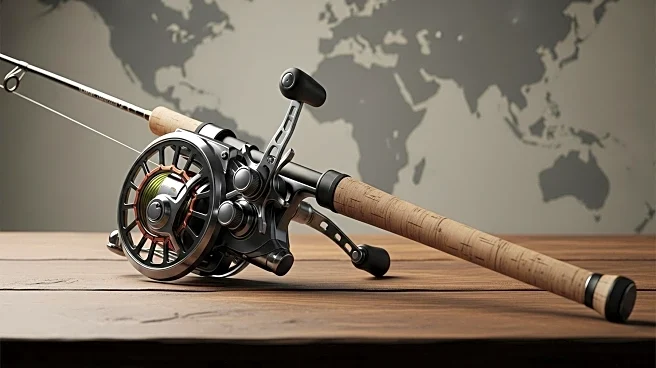What's Happening?
Orvis, a renowned outdoor retailer, has announced plans to close 31 stores and five outlet locations early next year. This decision comes as part of a strategic shift to focus on its core customer base of sports fishing and bird hunting enthusiasts. The company currently operates over 70 retail locations across the United States, but will reduce its footprint to 33 stores and two outlets. Orvis plans to concentrate on its wholesale operations, maintaining partnerships with over 550 independent retailers and several national outdoor retailers, including Bass Pro Shops, Cabela’s, and Sportsman's Warehouse. The move is driven by the need to adapt to a challenging tariff landscape, which has significantly impacted the retail sector. Orvis President Simon Perkins emphasized the importance of rescaling the business to ensure long-term sustainability, focusing on the company's strengths and heritage.
Why It's Important?
The decision by Orvis to close a significant number of its retail locations highlights the broader impact of tariffs on the U.S. retail industry. Tariffs have created a challenging environment for retailers, forcing them to reevaluate their business models and strategies. By shifting focus to wholesale, Orvis aims to leverage its established partnerships and maintain its market presence despite reducing its physical footprint. This move could influence other retailers facing similar challenges, prompting them to consider alternative business strategies. The emphasis on core strengths and heritage pursuits like fly fishing and wingshooting reflects a strategic pivot to cater to loyal customer segments, potentially ensuring brand longevity and stability in a volatile economic climate.
What's Next?
Orvis plans to invest in areas where it can make the greatest impact, such as world-class gear and apparel, unforgettable experiences, and conservation efforts. The company will continue to operate its direct-to-consumer website and Orvis Adventures business, which offers lodging and guide services. As Orvis enters this new chapter, it aims to lead in innovation and serve its angling and upland communities while protecting natural environments. The focus on conservation and heritage pursuits may attract new customers and strengthen relationships with existing ones. Other retailers may watch Orvis's strategy closely, considering similar shifts to adapt to economic pressures and changing consumer preferences.
Beyond the Headlines
Orvis's decision to close stores and focus on wholesale and conservation efforts may have deeper implications for the retail industry. It highlights the need for companies to adapt to external economic pressures, such as tariffs, by reevaluating their business models. The emphasis on heritage and conservation aligns with growing consumer interest in sustainable practices and ethical business operations. This shift could set a precedent for other retailers to prioritize sustainability and community engagement as part of their core strategies. Additionally, Orvis's focus on innovation and customer experience may drive advancements in product development and service offerings, influencing industry standards.









